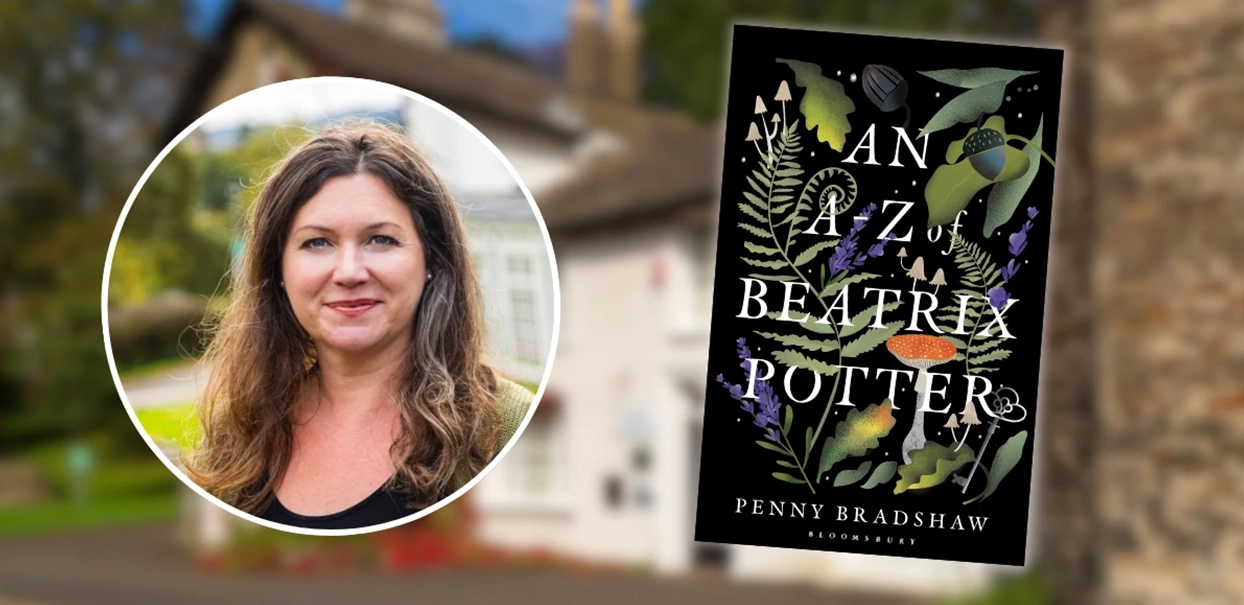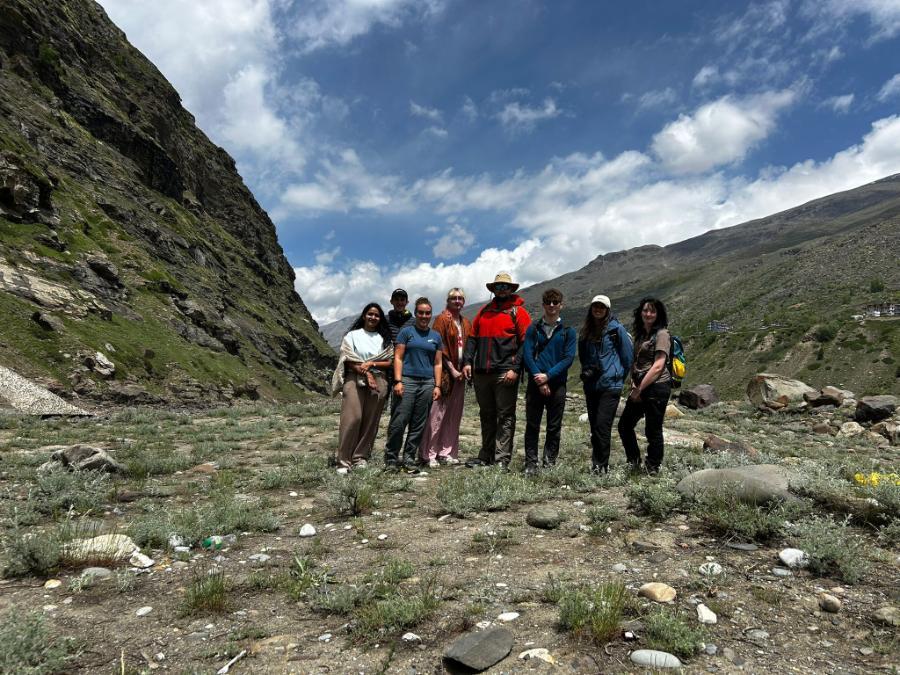
Dr Penny Bradshaw, Associate Professor of English Literature at the University of Cumbria, is set to publish a new book that offers a fresh and thought-provoking take on one of the most beloved figures in children’s literature: Beatrix Potter.
An A-Z of Beatrix Potter will explore Potter’s life, legacy, and literary imagination through 26 insightful essays. Here, Penny shares the inspiration behind her book, its key themes – from environmentalism to postcolonialism – and how her teaching on our MA Literature, Romanticism and the English Lake District programme continues to shape and be shaped by her research.
What’s your new book about?
The title of my new book is An A-Z of Beatrix Potter, and it is forthcoming with Bloomsbury Academic on 8 January 2026. In the book, I explore Potter's works via a series of short, interlinked essays which take their starting point from 26 key words and phrases from her children's books, letters, journals and other writings.
Along the way, the chapters offer fresh angles on familiar Potter themes and topics (A is for Animal; C is for Clothes) while others cast light on more uncharted corners of her imagination (D is for Dancing; U is for Uncanny; G is for Ginnett's Circus).
Entries like F is for Fairy, T is for Trees, S is for Seasons and R is for Rabbit Tobacco look at topics related to race, gender and the environment, while others use key words to open up discussion of Potter's legacies and impact (L is for Lake District; P is for Peter Rabbit; H is for The Horn Book), including global reception, TV and film adaptations, and the development of Potter's beloved Lake District as a thriving tourist destination.
You can find out more about my book via the publisher's website.
What was your personal motivation for writing the book?
My academic research for the first 10 years of my career was focused on women writers of the Romantic period, but for the last 15 years, I have been increasingly interested in regional literary contexts and the literary landscapes of Cumbria, from the Romantic period to the present.
Beatrix Potter is a very significant figure within that context, and I have been teaching her work for over 20 years. First at the undergraduate level and then, since 2019, on our Ambleside-based MA in Literature, Romanticism and the English Lake District.
During that time, I have become particularly interested in Potter as someone whose writings (from her private journals to her last published essays and letters) span a crucial period of human history – from the latter stages of the industrial revolution to World War Two – and whose work, while shaped by specific socio-cultural contexts, also continues to speak to us powerfully today.
What can readers expect to learn from your book?
A key element of the book is my focus on Potter as an important environmental writer for young people, one whose work should be seen as essential for child readers in the 21st century as we witness declining levels of nature literacy in the young. The book reflects on how Potter’s work continues to speak to us in this respect, such as via her complex treatment of animal/human relations, and in the ways in which her writings make us reflect on our responsibilities towards the creatures and other living species with whom we share our planet.
The book also touches on a much wider range of themes and topics, including (to name but a few) tourism – especially in relation to the Lake District – postcolonial theory, and ecofeminism.
How does your book link with the MA Literature, Romanticism and the English Lake District course?
Beatrix Potter’s work is taught on our MA Literature, Romanticism and the English Lake District programme, and we are now open to applications for September 2026. We have flexible learning options, with both full-time and part-time study routes available. We welcome applications from recently graduated students as well as lifelong learners who wish to study for interest or to help support a change of career direction.
We’ve had a number of student success stories in recent years. One of these is Jade Cookson’s development of a project, begun on her MA, which resulted in her writing the official guidebook to a new literary-themed walking route from Ullswater to Ambleside. Jade’s guidebook, The Wordsworth Way, has gained national media recognition. Click here to read about her time on our MA and to learn more about her experience writing the guidebook.
Several of our MA students have also gone on to engage in doctoral study here at the University of Cumbria, including Nada Saadaoui, who is working on the significance of walking in Jane Austen’s writing. Nada’s research also reached a national audience when an article about her work was recently published in The Conversation.
You can read about some of the other exciting doctoral projects being undertaken by MA graduates here: Garth Lindrup and Kira Welland.
How can readers learn more about the MA programme?
More information about our MA in Literature, Romanticism and the English Lake District can be found here, and you can also join us at one of our Ambleside open days – please visit the open days page for all upcoming events.
An open day is a great way to learn about module content and the programme structure on both the full- and part-time routes, plus key features of the course, including opportunities for work experience with partners such as Wordsworth Grasmere and the National Trust. You also have the chance to explore our beautiful campus.
Join a virtual information session
If you’re unable to visit us in person, we host regular virtual information sessions about the MA. These are held in the evening to provide flexibility around your schedule. You can explore upcoming dates below.

.jpg)


.jpg)